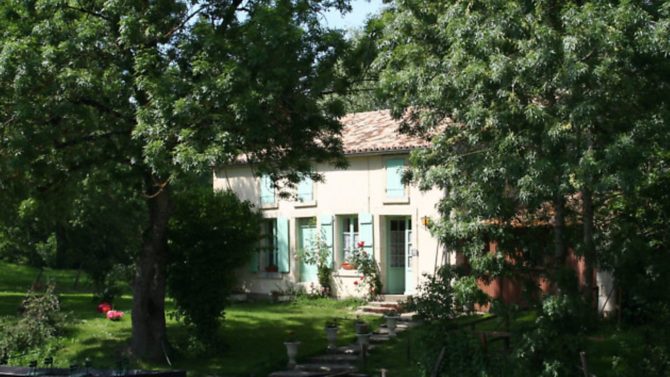10 French property pitfalls to avoid


Ensure your purchase goes smoothly with these top tips for buying a home in France
In France you exchange contracts at a much earlier stage, once your offer has been accepted, so it’s crucial to have the right people on your side. Under French law you have to use a ‘notaire’, but they are not the same as a UK solicitor. While they handle the conveyancing or searches, they are actually employed by the government and are responsible for collecting the relevant taxes owed at completion. The vendor and buyer often share a ‘notaire’ but you can appoint your own, in which case the two notaires share the fees. You may also wish to consult a solicitor to advise you on matters such as inheritance, how to structure your purchase and tax issues. Choose a bilingual solicitor who is experienced in dealing with French property purchases and the associated legal and tax aspects.
2) Don’t ignore inheritance planning
Under French law you have to leave a portion of your estate to your children (or your parents if you have no children), you can’t just leave your property to whoever you want, whether that is your spouse or the local cat’s home. There are ways around this, but they have legal and tax implications so it is important to seek advice if for any reason you do not wish to leave your French home to the reserved heirs.
Options include inserting a ‘tontine’ clause into the initial sales contract (‘compromis de vente’), buying via a property-holding company (‘société civile immobilière’ or SCI) or you can adopt a French marriage status. These measures can only be done before you buy your property though. You can’t change the ownership structure later on, so it’s important to consider this before you buy. There also inheritance tax implications; while there is no tax payable between spouses, if you are not married it can be as high as 60% – entering into a French civil partnership (PACS) is one solution but again this needs professional advice.
3) Be canny with your cash
Firstly, make sure you get your offer right. It’s surprising how many people who have an accurate idea of prices where they live in the UK will make an offer in France based on what they feel is right rather than market knowledge. It is easy to research prices across France online on various property portals and agency websites. Your agent can advise you too as they will also have a good idea of the price the vendor would be willing to accept. If you would rather have someone working purely on your behalf, you could use a property finder or property search agent.
You can also save money by using a foreign exchange specialist as they can usually offer a better rate than high-street banks. Also consider currency contracts which freeze exchange rates at certain points and protect you from adverse currency movements between making an offer and completing. Taking out a French mortgage may be financially beneficial too as rates are the lowest they have been since World War II.
4) Use a qualified agent
The French estate agency system is highly regulated and offers a safe environment in which to buy so it is easy to make sure your agent is one of the good guys. Registered agents and property finders hold a ‘carte professionnelle’, which shows they are professionally qualified – you can ask to see it if it’s not on display. Only one person in the agency needs the certificate; others can work under its umbrella as an ‘agent commercial’. For further peace of mind, you can choose an agent who belongs to one of the French real estate organisations, such as FNAIM (Fédération Nationale de l’Immobilier) or SNPI (Syndicat National des Professionnels Immobiliers).
5) Avoid dodgy deals
Take care who you give your money to. Never give it directly to the seller, always to the ‘notaire’ or to your agent if they are insured to take such payments. And never be tempted to pay ‘under the table’ to avoid taxes on the purchase by declaring a lower sale price. Even if you get away with it at the time, you will have to pay higher capital gains taxes when you come to sell as the difference between the price you paid (or declared you’d paid) and the price you sell at will be higher.
6) Be survey savvy
Although surveys are not common in France, that doesn’t mean you don’t have to have one. Various British surveyors, based in the UK or France, offer the service – choose one who understands the peculiarities of French buildings. Don’t get a structural survey confused with the ‘diagnostiques’ surveys; vendors are legally obliged to supply a Dossier de Diagnostic Technique (DDT), covering termites, lead paint, asbestos, natural and industrial risks, gas/electrical installations, septic tanks and energy efficiency ratings. You could also ask a builder to look over the property for you, especially if you are planning any renovation work.
7) Be realistic about renovation
If you are looking for a renovation project, it is important to understand the likely costs and timescales involved, to avoid them spiralling out of control. Get at least a couple of quotes before you sign for the property, and have a plan for how you will proceed – will you use an architect (legally required on projects of 170sqm and above), a project manager, French or British builders and artisans, or do the work yourself? Planning permission is also key; you can insert a condition (‘clause suspensive’) into the sales contract (‘compromis de vente’) stating that the purchase is dependent on planning permission being approved.
8) Choose a reputable developer
When buying a new property off-plan, it is important to establish that the developer is reputable before you sign the contract (‘contrat de réservation’) and hand over any money – do they have a bank guarantee for example? Bear in mind that in France developers don’t receive funding from the bank until a certain amount of properties have been signed up for, so check how far the development has progressed (has planning permission been approved or building work started?). Never hand over all the money at the start of the process – payments are made in stages, with the final payment due when the property is completed (after snagging). Penalty clauses can be inserted into the contract for late delivery.
9) Budget for additional costs
On top of the asking price you need to budget for the notaire’s and agent’s fees, which can easily add up to 15% of the price. Notaire’s fees include various taxes like stamp duty as well as their actual fees (set on a sliding scale according to the value of the property, usually 7-¬10%). Agency fees are at the agency’s discretion but are normally between 5¬-10%; they are usually paid by the buyer but may be included in the asking price (‘frais inclus’).
Don’t forget to account for mortgage fees too, if applicable, as well as costs such as solicitor’s fees and surveys.
10) Do your due diligence
Do your homework before you buy – read specialist magazines such as French Property News, consult websites (take care they are reputable though as online advice can be a little misleading or even incorrect) and attend French property exhibitions. Make sure you understand what you are undertaking – not just the buying process and costs involved, but everything else, from how you will access your property to what the running costs will be, including property taxes, utilities bills and service charges in apartment blocks. France is one of the safest countries in which to buy a property – as long as you take care with your research beforehand and use reputable and registered professionals, everything should ‘bien se passer’.
Share to: Facebook Twitter LinkedIn Email


